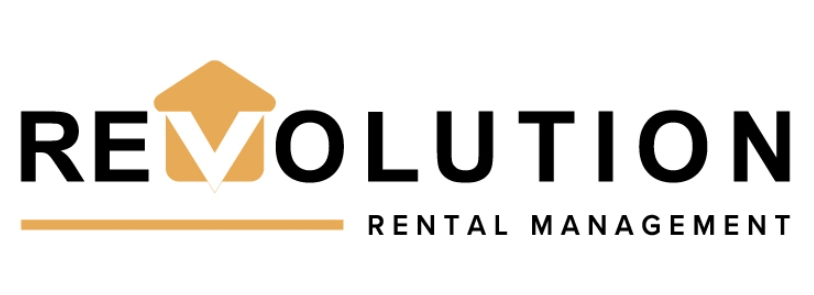Real estate investment has long been heralded as a path to financial prosperity. Whether you're a seasoned real estate mogul or just dipping your toes into the world of property ownership, one term that should be at the forefront of your mind is "cash flow."
In the realm of real estate, cash flow is akin to the lifeblood that sustains your investments and fuels your financial dreams. It's more than just a buzzword; it's a critical metric that can make or break your real estate strategy. But what exactly is cash flow, and why does it hold such significance in the world of real estate investment?
In this comprehensive guide, we'll delve deep into the importance of cash flow for your real estate endeavors. We'll demystify the concept, explore its profound impact on your investment success, and equip you with the knowledge and tools you need to harness its potential. Whether you're a novice investor or a seasoned pro, understanding the nuances of cash flow in real estate is essential for building wealth and securing a financially sound future.
So, let's embark on this journey to unravel the significance of cash flow in real estate, and discover how it can be the key to unlocking the full potential of your property investments.

Understanding the Fundamentals: What Is Cash Flow in Real Estate?
When it comes to real estate investment, cash flow is a term that you'll frequently encounter, and it's paramount to grasp its fundamental meaning and significance. At its core, cash flow in real estate is a financial metric that measures the net income generated by a property, typically on a monthly or annual basis. It's a simple yet crucial concept that serves as the lifeblood of your real estate investments. In this section, we'll break down the key components of cash flow and explore its different forms.
Gross Rental Income: It is the starting point of your cash flow calculation. It represents the total amount of money generated by a property through rent payments. This figure includes the rent collected from tenants, whether they are residential or commercial, and it's a key driver of your property's cash flow. Keep in mind that gross rental income does not account for any expenses or costs associated with the property; it's the total revenue before deductions.
Operating Expenses: To determine the true cash flow of your real estate investment, you need to account for operating expenses. These expenses encompass all the costs associated with owning and maintaining the property. Common operating expenses include property taxes, insurance, utilities, maintenance, property management fees, and any other costs necessary to keep the property in good condition and attract tenants.
Net Operating Income (NOI): It’s a critical intermediary figure in cash flow analysis. It's calculated by subtracting the operating expenses from the gross rental income. In essence, NOI represents the property's income after accounting for the costs of operation but before considering financing expenses (such as mortgage payments). NOI is a key indicator of a property's profitability and efficiency in generating income.
Financing Costs: Beyond operating expenses, real estate investors often use financing to purchase properties. If you have a mortgage or other financing arrangements, you'll need to account for financing costs when calculating cash flow. These costs include monthly mortgage payments, interest, and any other financial obligations related to the property's purchase.
Cash Flow: Finally, we arrive at the heart of the matter: cash flow. In real estate, cash flow is determined by subtracting your financing costs from the NOI. It represents the actual income you receive from your investment property after covering all operating expenses and financial obligations. Cash flow can be either positive or negative, depending on whether your property generates more income than it costs to operate and finance.
Understanding these fundamental components of cash flow is essential for making informed investment decisions in the real estate market. It allows you to assess the potential profitability of a property, evaluate its risks, and determine whether it aligns with your investment goals. In the following sections of this guide, we'll explore why positive cash flow is a critical factor for real estate success and how to leverage it to build wealth and financial security.

The Role of Cash Flow in Real Estate Investment Success
Cash flow is the heartbeat of real estate investment, and its role in determining your success in this market cannot be overstated. To understand why, let's delve into the pivotal ways in which cash flow impacts your real estate investment journey.
Steady Income Stream: Cash flow from rental income provides you with a consistent and predictable source of revenue. Unlike some investments that rely on market fluctuations, real estate generates income through rent payments from tenants. This steady income stream can help you cover property-related expenses, make mortgage payments, and even generate profits on a regular basis.
Risk Mitigation: Positive cash flow acts as a safety net, helping you weather unforeseen expenses or periods of vacancy. When you have more money coming in than going out, you're better prepared to handle maintenance costs, property repairs, or any unexpected financial setbacks without dipping into your personal funds.
Long-Term Wealth Building: Cash flow isn't just about making ends meet; it's about building wealth over time. Real estate investors often focus on properties that not only generate positive cash flow but also appreciate in value. As property values increase over the years, your net worth grows, providing you with a powerful avenue for long-term wealth accumulation.
Financing Opportunities: Lenders and financial institutions often favor real estate investments with positive cash flow. When you can demonstrate that your rental property generates more income than it costs to operate and finance, you become a more attractive candidate for loans and financing options. This can open doors to expansion and diversification of your real estate portfolio.
Exit Strategies: Positive cash flow can play a crucial role in your exit strategy. When it's time to sell a property, having a history of consistent cash flow can make your asset more appealing to potential buyers, leading to a higher selling price. Alternatively, you may choose to keep the property as a cash flow generator for passive income during retirement.
In summary, cash flow is not just a financial metric; it's the backbone of your real estate investment success. It ensures your investments remain financially viable, reduces risk, and provides opportunities for growth and wealth accumulation. As we move forward in this guide, we'll explore how to maximize and optimize your cash flow, equipping you with the tools and strategies to achieve your real estate investment goals. Whether you're a beginner or a seasoned investor, understanding and harnessing the power of cash flow can make all the difference in your real estate journey.

Mitigating Risks and Building Wealth: The Benefits of Positive Cash Flow
Positive cash flow in real estate isn't just a financial metric; it's a powerful tool that can help you mitigate risks and pave the way to wealth accumulation. Let's explore the numerous advantages of having a healthy cash flow, and how property managers can play a crucial role in this endeavor.
Risk Mitigation: One of the primary benefits of positive cash flow is its ability to cushion you against unexpected financial setbacks. When your property consistently generates more income than it costs to operate and finance, you have a financial buffer to handle maintenance emergencies, periods of vacancy, or economic downturns. This risk mitigation can be the difference between thriving in the real estate market and facing financial hardship.
Financial Stability: Positive cash flow contributes to your overall financial stability. It allows you to cover not only day-to-day operating expenses but also long-term financial obligations like mortgage payments. This stability reduces the risk of defaulting on loans and can improve your creditworthiness, opening up more financing opportunities for future investments.
Wealth Building: Beyond stability, positive cash flow is a wealth-building machine. The surplus income generated by your real estate investments can be reinvested in additional properties, accelerating your portfolio growth. As your property values appreciate and cash flow continues to flow in, your net worth steadily increases, ultimately leading to financial independence and security.
Passive Income: Positive cash flow turns your real estate investments into a source of passive income. Instead of relying solely on your 9-to-5 job, you can enjoy the financial freedom that comes with having rental properties that generate consistent income month after month. This passive income stream can support your lifestyle, fund retirement, or serve as a safety net during challenging times.
The Role of Property Managers: Property managers play a crucial role in maintaining and maximizing positive cash flow. They handle day-to-day property management tasks such as tenant screening, rent collection, maintenance coordination, and property marketing. By ensuring that your property remains occupied by reliable tenants and well-maintained, property managers contribute to a steady and reliable income stream. They can also provide valuable insights on rent pricing strategies to optimize your cash flow.
In conclusion, positive cash flow is the linchpin of real estate success, offering you a range of financial benefits, risk mitigation, and wealth-building opportunities. Property managers can be your allies in this journey, helping you maintain and enhance your cash flow by efficiently managing your rental properties. As we continue our exploration of cash flow in real estate, we'll delve into strategies to improve and maximize this essential financial metric.

Cash Flow Analysis Tools and Techniques for Real Estate Investors
Analyzing cash flow is a critical skill for successful real estate investors. To make informed decisions and ensure your investments remain profitable, you need to utilize various tools and techniques. In this section, we'll explore some of the essential resources and strategies available to real estate investors for effective cash flow analysis.
Spreadsheets and Software: Utilizing spreadsheet software like Microsoft Excel or specialized real estate analysis software can simplify cash flow calculations. These tools allow you to input all relevant income and expense data for your properties and automatically calculate cash flow based on your inputs. They can also generate reports and projections to help you make informed investment decisions.
Online Calculators: Numerous online calculators are tailored specifically for real estate cash flow analysis. These tools often require you to input key data points, such as rental income, operating expenses, and financing costs. They can quickly provide you with a cash flow estimate and other financial metrics to assess the viability of a potential investment.
Real Estate Investment Software: Advanced real estate investment software platforms offer comprehensive analysis capabilities. They can help you model various scenarios, including property appreciation, rental rate changes, and financing options. These tools provide a more in-depth understanding of your potential cash flow under different conditions, allowing you to make more informed investment choices.
Professional Advice: Consulting with real estate professionals, such as accountants, financial advisors, and property managers, can provide valuable insights into your cash flow analysis. These experts can help you navigate the complexities of real estate investment, ensure your calculations are accurate, and provide guidance on optimizing your cash flow.
Market Research: Effective cash flow analysis also requires a deep understanding of the local real estate market. Conducting thorough market research to determine rental demand, vacancy rates, and rental income potential is essential. Market conditions can significantly impact your cash flow, so staying informed is crucial.
Risk Assessment: While analyzing cash flow, it's vital to assess potential risks. Consider factors like economic trends, job growth, and property-specific risks that could affect your investment. Understanding and quantifying these risks allows you to make more informed decisions and implement strategies to mitigate potential cash flow challenges.
In conclusion, cash flow analysis tools and techniques are indispensable resources for real estate investors. Whether you're using software, online calculators, or seeking advice from professionals, these tools can help you evaluate potential investments and make sound financial decisions. Remember that accurate and thorough cash flow analysis is key to ensuring your real estate investments remain profitable and align with your investment goals.

Strategies to Improve Cash Flow and Optimize Your Real Estate Portfolio
Now that we've explored the importance of cash flow in real estate and the tools for effective analysis, it's time to delve into strategies that can help you enhance your cash flow and optimize your real estate portfolio. These techniques are essential for maximizing your returns and ensuring long-term financial success.
Rent Optimization: Review and adjust your rental rates regularly to ensure they align with the current market conditions. Property managers can provide valuable insights into local rental trends and help you set competitive yet profitable rental rates.
Expense Management: Carefully analyze your property's operating expenses and identify areas where you can reduce costs without compromising on quality. Property managers can assist in cost-effective property maintenance and management, helping to maintain a healthy cash flow.
Tenant Screening: Place a strong emphasis on tenant screening to secure reliable, long-term renters. Property managers are skilled at vetting potential tenants, minimizing the risk of rent defaults and property damage.
Lease Terms: Consider lease terms that are conducive to cash flow stability. Longer leases can provide a steady income stream, reducing turnover and vacancy periods. Property managers can assist in negotiating favorable lease agreements.
Maintenance and Repairs: Regular property maintenance and timely repairs can prevent costly issues down the road. Property managers can coordinate maintenance tasks efficiently, ensuring the property remains in good condition and reducing unexpected expenses.
Diversification: Diversify your real estate portfolio to spread risk and enhance cash flow stability. Different types of properties, such as residential and commercial, can have varying cash flow dynamics. Property managers can help you manage a diverse portfolio effectively.
Financing Review: Periodically review your financing arrangements to explore opportunities for refinancing or restructuring loans to lower interest rates or extend repayment terms, potentially reducing your monthly financing costs.
Market Expansion: Explore opportunities to expand your real estate holdings in markets with high demand and potential for cash flow growth. Property managers with local expertise can be invaluable in identifying promising investment locations.
Professional Property Management: Enlist the services of a professional property manager to handle day-to-day operations efficiently. Property managers are adept at tenant retention, rent collection, and property maintenance, all of which contribute to improved cash flow.
Incorporating these strategies into your real estate investment approach can help you not only improve cash flow but also optimize your overall portfolio performance. Property managers, in particular, can play a pivotal role in executing these strategies effectively, ensuring that your investments remain profitable and aligned with your financial objectives. With a well-thought-out cash flow strategy and expert guidance, you can thrive in the dynamic world of real estate investment.
Conclusion
In the world of real estate investment, cash flow is not just a number on a spreadsheet; it's the heartbeat of your financial success. It's the difference between a thriving portfolio and one fraught with uncertainty. In this comprehensive guide, we've explored the fundamental importance of cash flow in real estate and how it impacts your investment journey.
From understanding the basics of cash flow to leveraging it as a powerful wealth-building tool, we've covered the essentials every real estate investor should know. We've delved into the benefits of positive cash flow, the tools and techniques for effective analysis, and strategies to enhance cash flow and optimize your real estate portfolio.
As you embark on your real estate investment journey or seek to refine your existing portfolio, remember that achieving and maintaining a healthy cash flow is key to your financial success. And here's where we come in.
Revolution Rental Management: Your Partner in Real Estate Success
At Revolution Rental Management, we understand the intricate dance of cash flow in real estate. Our team of dedicated property managers possesses the knowledge and experience to help you navigate the challenges and maximize the rewards of property ownership. From tenant screening to rent optimization, and expense management to property maintenance, we're here to streamline your real estate operations, enhance your cash flow, and ultimately optimize your real estate portfolio.
Don't leave the financial well-being of your real estate investments to chance. Take action today and partner with Revolution Rental Management. Let us help you transform your real estate investments into a source of consistent cash flow and long-term wealth. Reach out to us now and discover the difference professional property management can make in your real estate journey. Your success is our commitment, and together, we can revolutionize your real estate portfolio.

.jpg)

